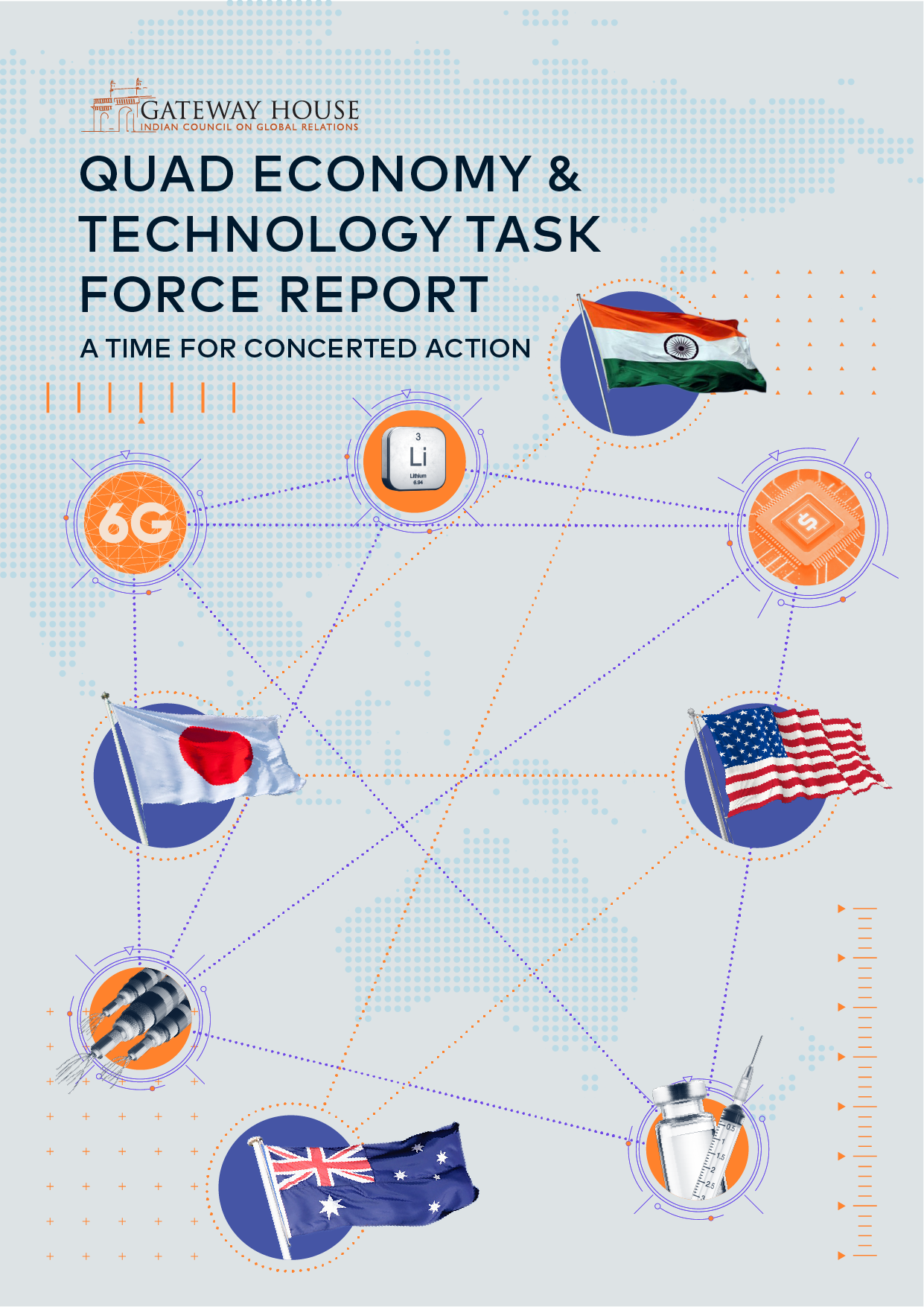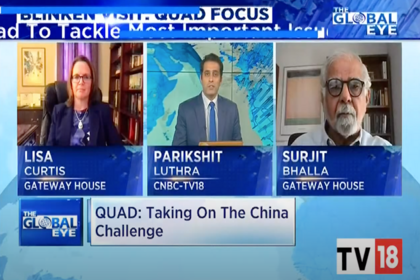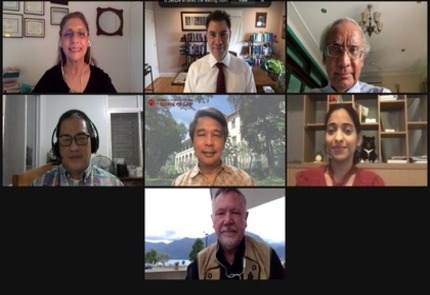A time for concerted action among Quad countries: Gateway House Task Force Report
Group identifies areas of potential economic and technological cooperation between four like-minded democracies in the Indo-Pacific

Group identifies areas of potential economic and technological cooperation between four like-minded democracies in the Indo-Pacific
 Courtesy: Gateway House
Courtesy: Gateway House
Conceived in 2020, the task force studied promising areas for cooperation between the Quad countries beyond their pre-existing maritime security partnership. The report highlights the need to increase economic and technological interdependence among the Quad countries and to establish common and updated rules and standards for emerging technologies in five study areas. The unique mix of the group – three developed and one developing nation, three Pacific and one Indian Ocean nation, three producer-trading nations with one massive emerging market – lends itself to innovation, experimentation and cooperation that can be a template for a new, post-pandemic geopolitical era.
 Courtesy: Haroon Sabawoon
Courtesy: Haroon Sabawoon
The Taliban’s rapid advance towards Kabul shows clear signs of learning from previous failures. The chances of a revival of the old Northern Alliance are minimal. Regional powers are left with the option of maintaining diplomatic contact with the Taliban whilst not taking any assurances on trust.
 Courtesy: The Times of India
Courtesy: The Times of India
In an interview with Garrison Moratto of The New Diplomatist, Amb. Rajiv Bhatia, Distinguished Fellow, Foreign Policy Studies, counters China's claims that the Quad is an "Asian NATO." He highlights how the India-U.S.-Japan-Australia Quadrilateral initiative aims to increase cooperation in the Indo-Pacific on international law and security. This podcast delves into the history of the Quad's formation, current strategic characteristics, and future geopolitics, ahead of the fall in-person Leaders' Summit in the U.S.
 Courtesy: Shutterstock
Courtesy: Shutterstock
Sanctions are an important foreign policy tool, used especially by the West against its adversaries. Now, these rivals are retaliating with counter-sanctions. Are these effective? How does this impact global politics? Where does India stand in this free-for-all sanctions era?
 Courtesy: CNBC-TV18 (Youtube)
Courtesy: CNBC-TV18 (Youtube)
On 30 July 2021, Lisa Curtis and Surjit Bhalla, co-chairs of the Gateway House Quad Economy and Technology Task Force, spoke to CNBC-TV-18 on the various channels of cooperation between the Quad countries in technology, supply chains and undersea cables, and the need to counter China's dominance in the Indo-Pacific.
 Courtesy: Flickr
Courtesy: Flickr
Three senior U.S. officials visited Asia in July in a well-choreographed diplomatic outreach strategy by the Biden administration. The U.S is willing to prioritise the Indo-Pacific and counter China. Asia cannot afford to be a reticent bystander.
 Courtesy: SCO, Russia (2020)
Courtesy: SCO, Russia (2020)
A potential anti-Quad formation of China, Russia, Iran and Pakistan is in the making, and can pose risks to the Quadrilateral Security Dialogue. However, a close analysis of China's bilateral relationship with each country shows that this is a flawed grouping, formed on limited common interests and rivalries.
 Courtesy:
Courtesy:
On 15 July, Gateway House co-hosted a webcast with Konrad-Adenauer-Stiftung (KAS) on 'Countering China’s Maritime Grey Zone Activities'. The panel discussed the potential strategies that smaller nations in the region can adopt to overcome the challenges of Chinese maritime grey zone activities, and the role of regional maritime powers in capability-building of maritime law enforcement agencies.
 Courtesy: Shutterstock
Courtesy: Shutterstock
A ransomware attack recently targeted Kaseya, a software services company in the U.S., for $70 million, incapacitating hundreds of its clients globally. There is an increasing incidence of such attacks, with perpetrators targeting government agencies and high-tech companies, leading to considerable economic losses. How can governments mitigate these threats and attribute responsibility to those accountable?